Shenzhen Wesort Optoelectronics Co., Ltd.
Address:Building 29, Longwangmiao Industrial Zone, Fuyong street, Bao'an District, Shenzhen, Guangdong Province, China.
Phone:+86 181 2370 6862
A color sorter is an advanced machine based sorting device that uses optical sensors and advanced image processing technology to distinguish and separate objects based on their color, shape, size, and other visual characteristics.

1. Working Principle
Optical Detection: The color sorter is equipped with a high speed and high resolution camera or optical sensor. When the material to be sorted passes through the detection area, the optical sensor captures the image information of each object. For example, in a rice sorting color sorter, the sensor will take pictures of each grain of rice as it moves along the conveyor belt.
Image Processing and Analysis: The captured images are then sent to a computer based processing system. The system uses sophisticated algorithms to analyze the color, brightness, and other visual features of the objects. It can identify differences in color, such as separating yellow tinted grains from pure white grains in a batch of rice, or it can distinguish between different shapes and sizes of objects.
Sorting Mechanism: Based on the analysis results, the color sorter activates a sorting mechanism. This usually involves a series of high speed air jets or mechanical deflectors. If an object is identified as a defective or unwanted item according to the preset sorting criteria, the sorting mechanism will quickly separate it from the rest of the material. For example, in a nut sorting color sorter, if a nut with an abnormal color or damaged shape is detected, an air jet will blow it into a separate collection bin.
2. Applications
Food Industry
Grain Sorting: It is widely used to sort grains such as rice, wheat, and corn. By removing discolored, damaged, or foreign matter contaminated grains, it improves the quality and purity of the final food product. For example, in the production of high quality polished rice, the color sorter can ensure that only grains with the desired color and shape are packaged for consumers.
Fruit and Vegetable Sorting: It can also sort fruits and vegetables. For instance, in the processing of dried fruits like raisins, it can separate raisins of different colors and qualities. In the sorting of fresh fruits, it helps to remove bruised or over ripe fruits.
Snack and Nut Sorting: For products like nuts, seeds, and chips, the color sorter can identify and remove burnt, discolored, or broken pieces, ensuring a consistent product appearance and quality.
Mining and Mineral Processing
Ore Sorting: In the mining industry, it is used to separate valuable minerals from gangue (waste rock). By identifying the different colors and reflective properties of minerals and rocks, it can increase the efficiency of ore beneficiation and reduce the amount of material that needs to be further processed. For example, in a copper ore mine, the color sorter can help separate copper rich ores from less valuable materials.
Recycling Industry: In the recycling of plastics, glass, and metals, color sorters play an important role. They can separate different types of plastics based on their colors, such as separating clear PET bottles from colored ones. In the recycling of glass, it can sort glass fragments by color for more efficient recycling processes.
3. Benefits
Quality Improvement: By precisely sorting materials, it significantly enhances the quality of the end product. The removal of defective or unwanted items ensures that the final product meets the highest standards of appearance, purity, and performance.
Increased Efficiency: It can handle a large volume of materials in a relatively short time. Compared to manual sorting, color sorters can work continuously and at a much higher speed, increasing the overall productivity of the sorting process.
Cost effectiveness: Although the initial investment in a color sorter can be significant, in the long run, it can reduce labor costs and waste. By ensuring a higher quality product, it can also reduce the risk of product recalls or customer complaints.
WESORT is a renowned brand in the field of color sorting. It has made significant contributions with its advanced color sorting technology. WESORT color sorters are known for their high precision and efficiency. They are designed to handle various types of materials with ease and accuracy. The brand emphasizes continuous innovation and improvement, aiming to meet the diverse and evolving needs of different industries. Whether it's in the food processing, industrial manufacturing, or other sectors, WESORT color sorters have proven to be reliable tools for enhancing product quality and production efficiency. With a commitment to excellence and customer satisfaction, WESORT has established a solid reputation and is widely recognized and trusted by businesses around the world.
A color sorter is an advanced machine based sorting device that uses optical sensors and advanced image processing technology to distinguish and separate objects based on their color, shape, size, and other visual characteristics.

1. Working Principle
Optical Detection: The color sorter is equipped with a high speed and high resolution camera or optical sensor. When the material to be sorted passes through the detection area, the optical sensor captures the image information of each object. For example, in a rice sorting color sorter, the sensor will take pictures of each grain of rice as it moves along the conveyor belt.
Image Processing and Analysis: The captured images are then sent to a computer based processing system. The system uses sophisticated algorithms to analyze the color, brightness, and other visual features of the objects. It can identify differences in color, such as separating yellow tinted grains from pure white grains in a batch of rice, or it can distinguish between different shapes and sizes of objects.
Sorting Mechanism: Based on the analysis results, the color sorter activates a sorting mechanism. This usually involves a series of high speed air jets or mechanical deflectors. If an object is identified as a defective or unwanted item according to the preset sorting criteria, the sorting mechanism will quickly separate it from the rest of the material. For example, in a nut sorting color sorter, if a nut with an abnormal color or damaged shape is detected, an air jet will blow it into a separate collection bin.
2. Applications
Food Industry
Grain Sorting: It is widely used to sort grains such as rice, wheat, and corn. By removing discolored, damaged, or foreign matter contaminated grains, it improves the quality and purity of the final food product. For example, in the production of high quality polished rice, the color sorter can ensure that only grains with the desired color and shape are packaged for consumers.
Fruit and Vegetable Sorting: It can also sort fruits and vegetables. For instance, in the processing of dried fruits like raisins, it can separate raisins of different colors and qualities. In the sorting of fresh fruits, it helps to remove bruised or over ripe fruits.
Snack and Nut Sorting: For products like nuts, seeds, and chips, the color sorter can identify and remove burnt, discolored, or broken pieces, ensuring a consistent product appearance and quality.
Mining and Mineral Processing
Ore Sorting: In the mining industry, it is used to separate valuable minerals from gangue (waste rock). By identifying the different colors and reflective properties of minerals and rocks, it can increase the efficiency of ore beneficiation and reduce the amount of material that needs to be further processed. For example, in a copper ore mine, the color sorter can help separate copper rich ores from less valuable materials.
Recycling Industry: In the recycling of plastics, glass, and metals, color sorters play an important role. They can separate different types of plastics based on their colors, such as separating clear PET bottles from colored ones. In the recycling of glass, it can sort glass fragments by color for more efficient recycling processes.
3. Benefits
Quality Improvement: By precisely sorting materials, it significantly enhances the quality of the end product. The removal of defective or unwanted items ensures that the final product meets the highest standards of appearance, purity, and performance.
Increased Efficiency: It can handle a large volume of materials in a relatively short time. Compared to manual sorting, color sorters can work continuously and at a much higher speed, increasing the overall productivity of the sorting process.
Cost effectiveness: Although the initial investment in a color sorter can be significant, in the long run, it can reduce labor costs and waste. By ensuring a higher quality product, it can also reduce the risk of product recalls or customer complaints.
WESORT is a renowned brand in the field of color sorting. It has made significant contributions with its advanced color sorting technology. WESORT color sorters are known for their high precision and efficiency. They are designed to handle various types of materials with ease and accuracy. The brand emphasizes continuous innovation and improvement, aiming to meet the diverse and evolving needs of different industries. Whether it's in the food processing, industrial manufacturing, or other sectors, WESORT color sorters have proven to be reliable tools for enhancing product quality and production efficiency. With a commitment to excellence and customer satisfaction, WESORT has established a solid reputation and is widely recognized and trusted by businesses around the world.
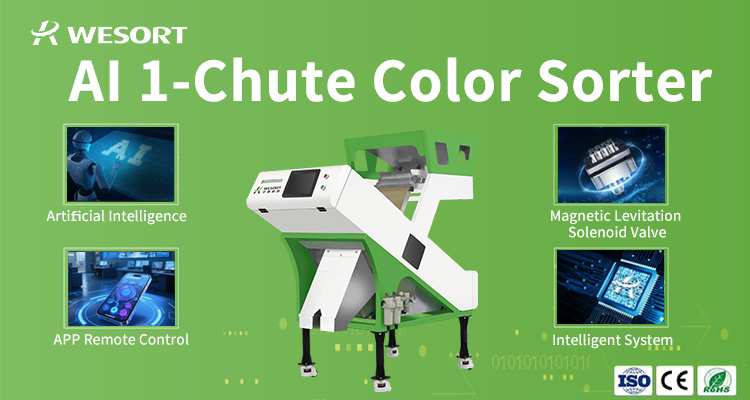
In modern agriculture, food processing, and recycling, quality control plays a vital role. This is where an optical sorter comes in. Many buyers often ask: What is an optical sorter? What does it do? How much does it cost? And how is WESORT optical...
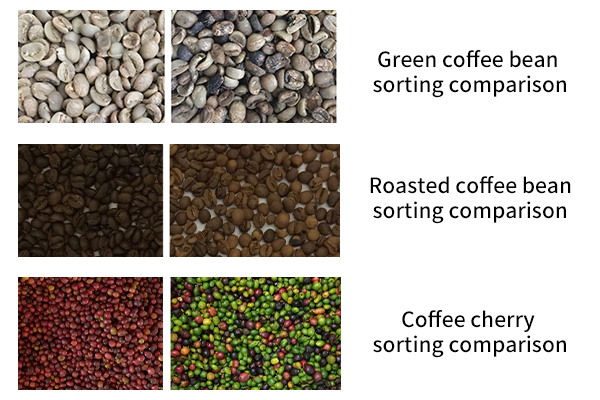
In the coffee industry, the quality of the final cup often depends on the smallest details during processing. One crucial step is removing defective beans, foreign materials, and color inconsistencies. This is where a coffee bean color sorter plays...

Coffee processing is a complex and meticulous task that involves several stages to transform raw coffee cherries into the high-quality beans we enjoy in our morning brew. One crucial step in this process is the sorting of coffee beans based on thei...

In the world of walnut processing, even the smallest imperfection can significantly impact product quality, market price, and brand reputation. Mold, insect damage, broken pieces, or inconsistent color are common defects that reduce the value of wa...
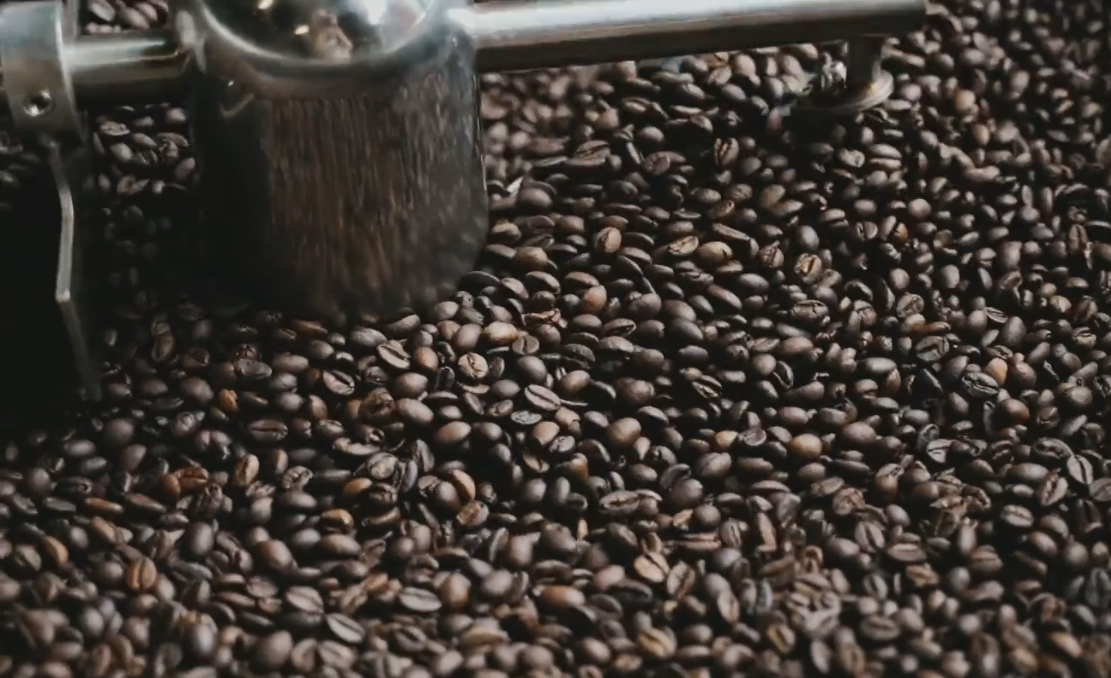
From green bean exporters to specialty coffee roasters, every producer faces the same challenge: how to remove defects efficiently while protecting valuable beans. Problems such as mold, fermentation damage, insect bites, black beans, broken beans,...
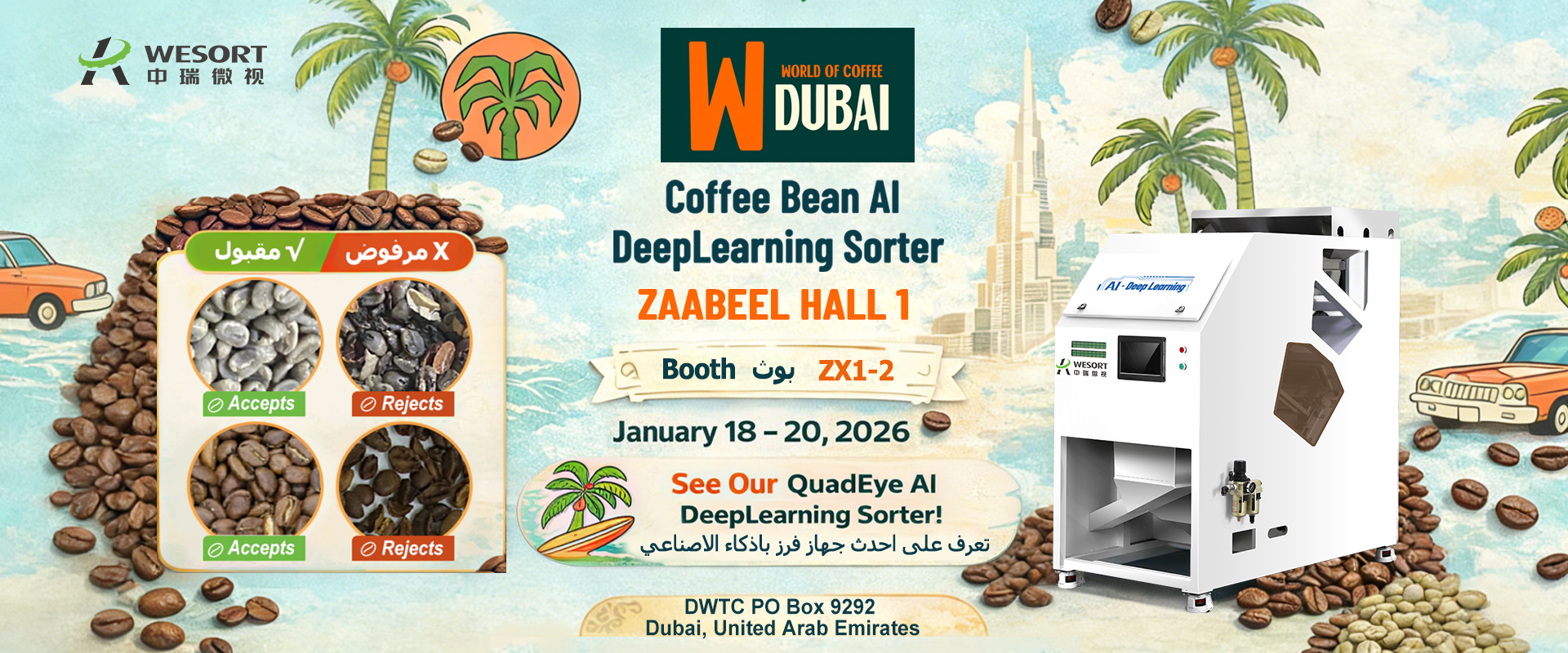
To meet the growing demand for premium and specialty coffee, sorting accuracy must go beyond traditional color-based systems. The QuadEye 360 AI Coffee Bean Sorter, developed by WESORT, represents the next generation of intelligent coffee bean so...
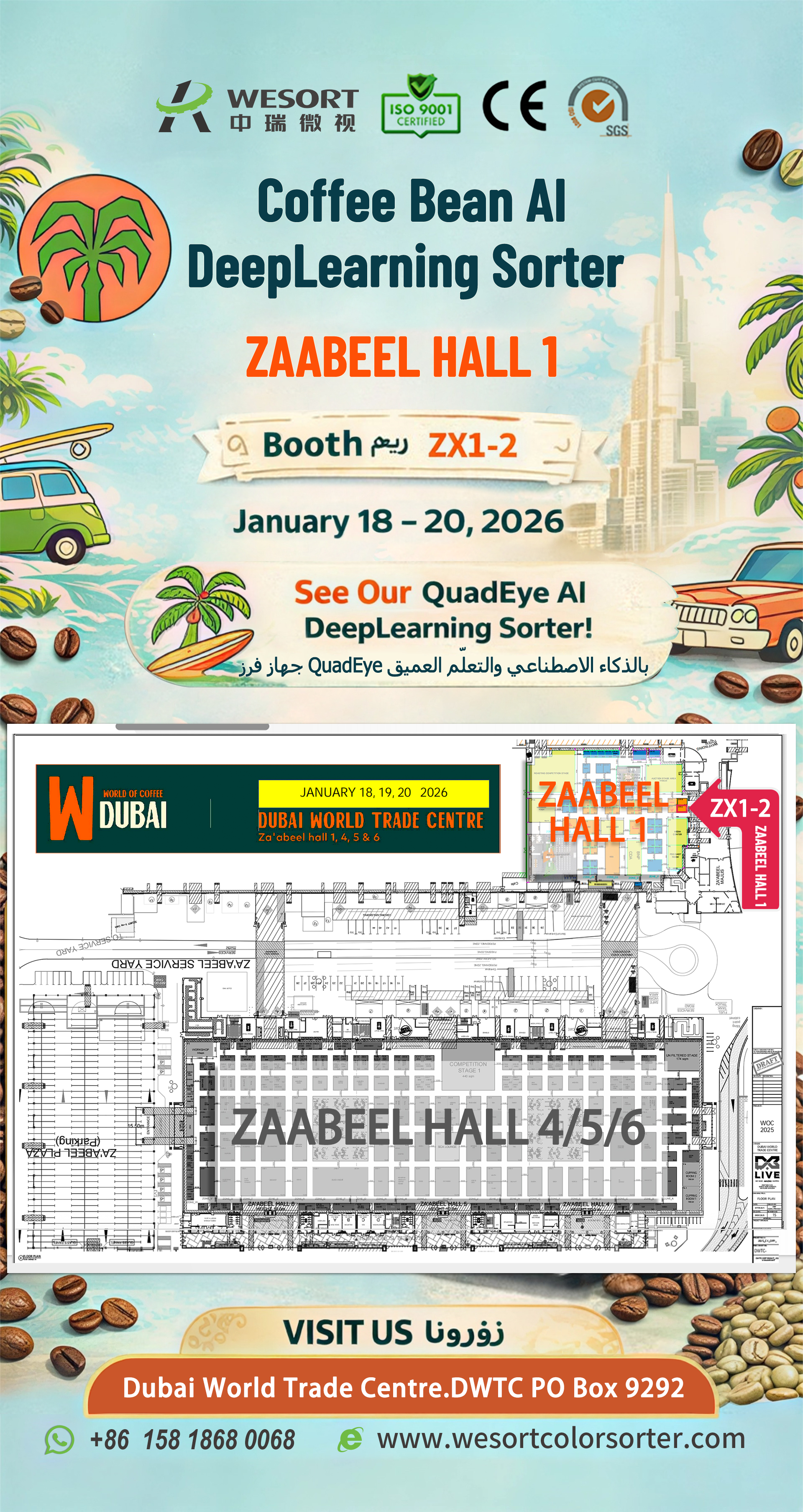
Dear friend, If you are attending World of Coffee Dubai 2026. we would like to invite you to visit WESORT. We will showcase our QuadEye 360 AI Coffee Bean Sorter, featuring 360° four-side inspection, AI deep learning models, near-zero breakage,...

Meta Description: Looking for the top hazelnut sorting machine manufacturer? WESORT offers advanced hazelnut color sorters with AI deep learning to efficiently remove defects, pests, and foreign materials. Boost your hazelnut processing efficienc...
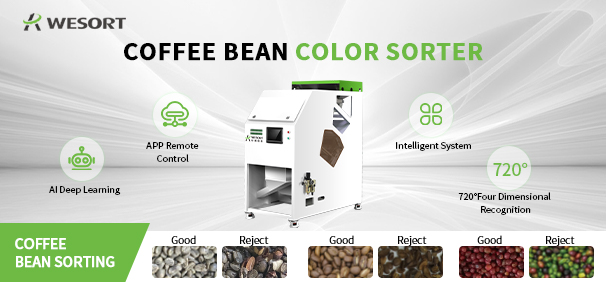
With the growing popularity of specialty coffee, the purity of coffee beans determines the aroma and taste of a cup of coffee. Achieving 99.9% purity requires high-performance coffee bean sorting equipment. Among Chinese coffee bean color sorter ma...
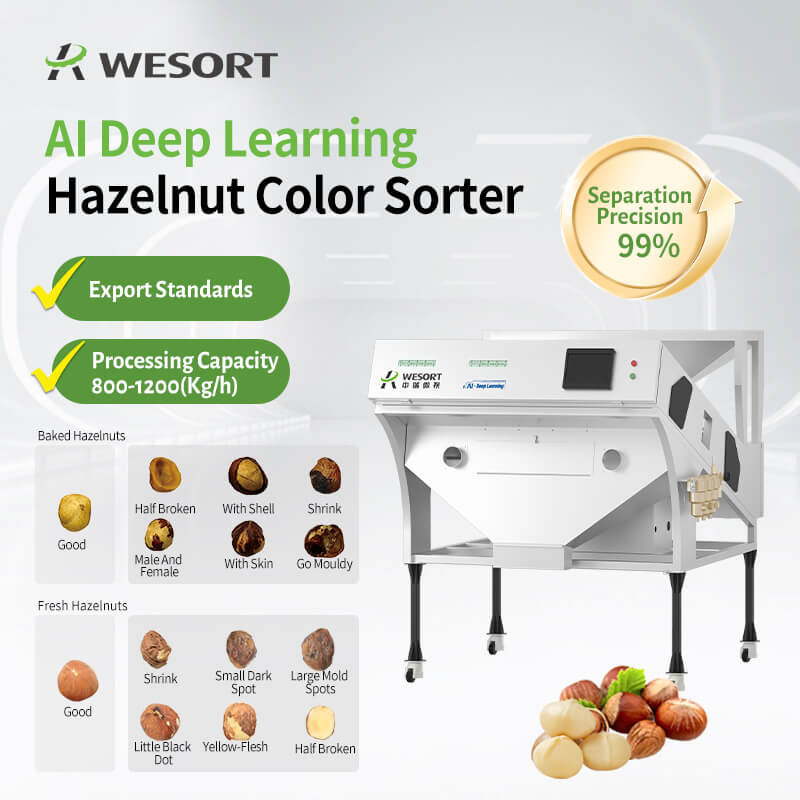
What's the most vexing issue in the hazelnut industry chain? It's not yield, but quality. Defects like mold, wrinkled skin, and foreign matter not only reduce product value but can also put export orders at risk. The solution isn't to increase the ...
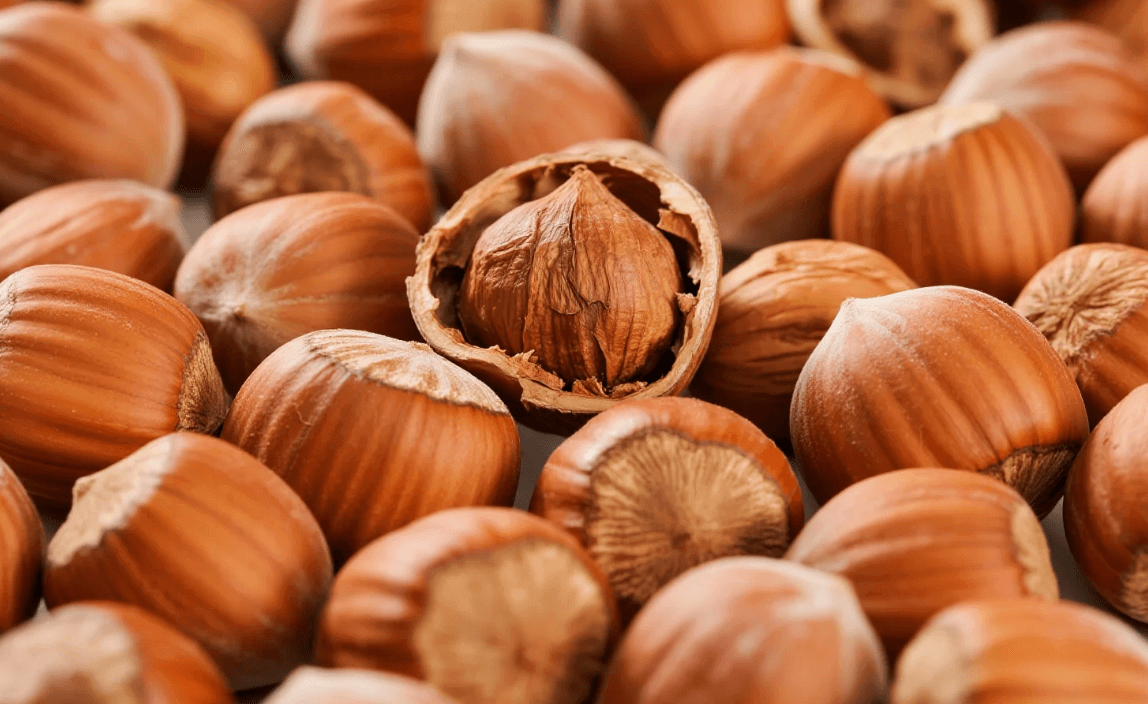
Every hazelnut tells a story—about the soil it grew in, the care during harvest, and the precision of its processing. Yet between farm and final product, hidden defects like mold, insect damage, and discoloration can turn premium hazelnuts into cos...
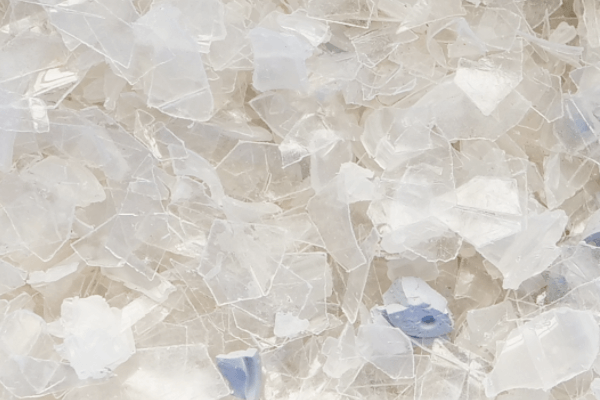
Plastic waste recycling is one of the most pressing challenges in today’s sustainability-driven world. Proper plastic sorting ensures high-quality recycled materials, reduces environmental impact, and improves profitability for recycling businesses...
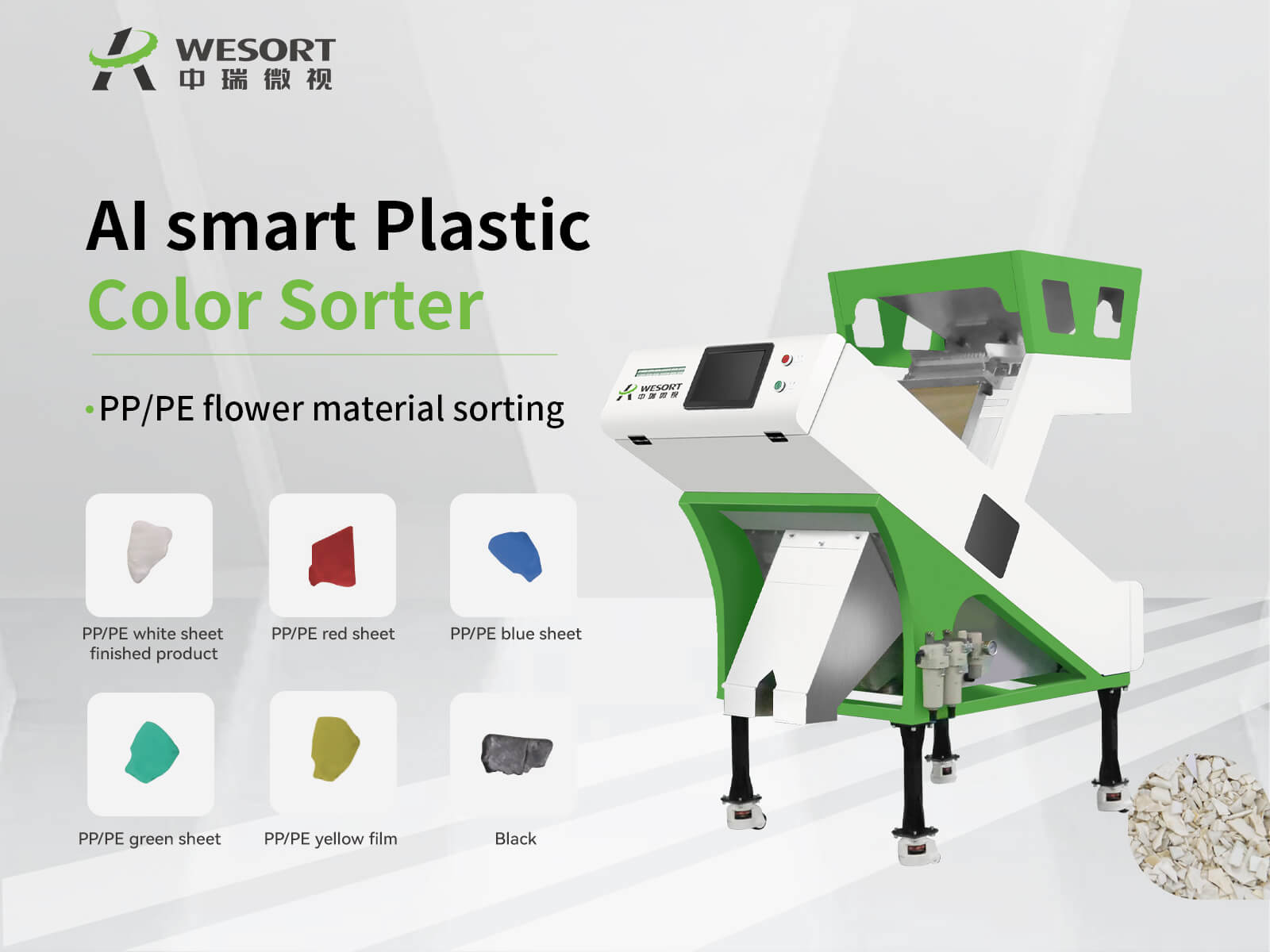
In the plastic recycling industry, purity and efficiency directly determine profitability. As global demand for recycled plastics increases, manufacturers need advanced solutions to separate impurities, improve yield, and ensure consistent product ...
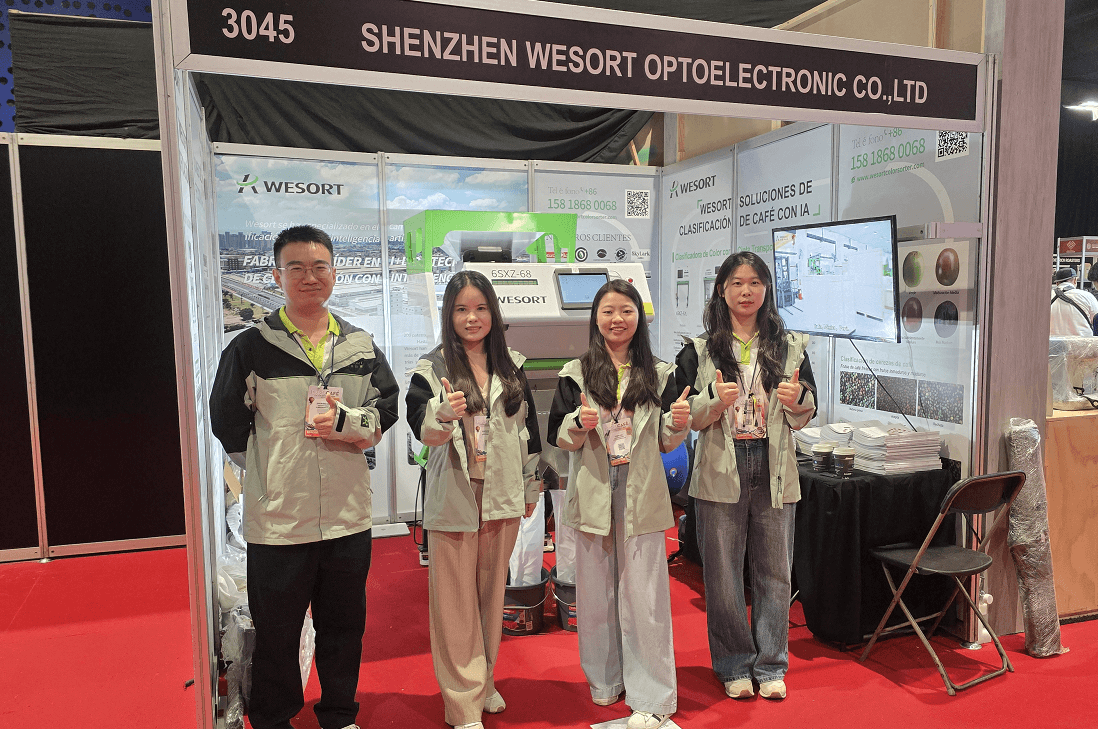
In Mexico, coffee is more than just a drink — it’s a culture, a tradition, and a vital industry. Yet, challenges like impurities, pest damage, and uneven coloration often diminish the value of even the most carefully cultivated beans. At EXPO CAFÉ...
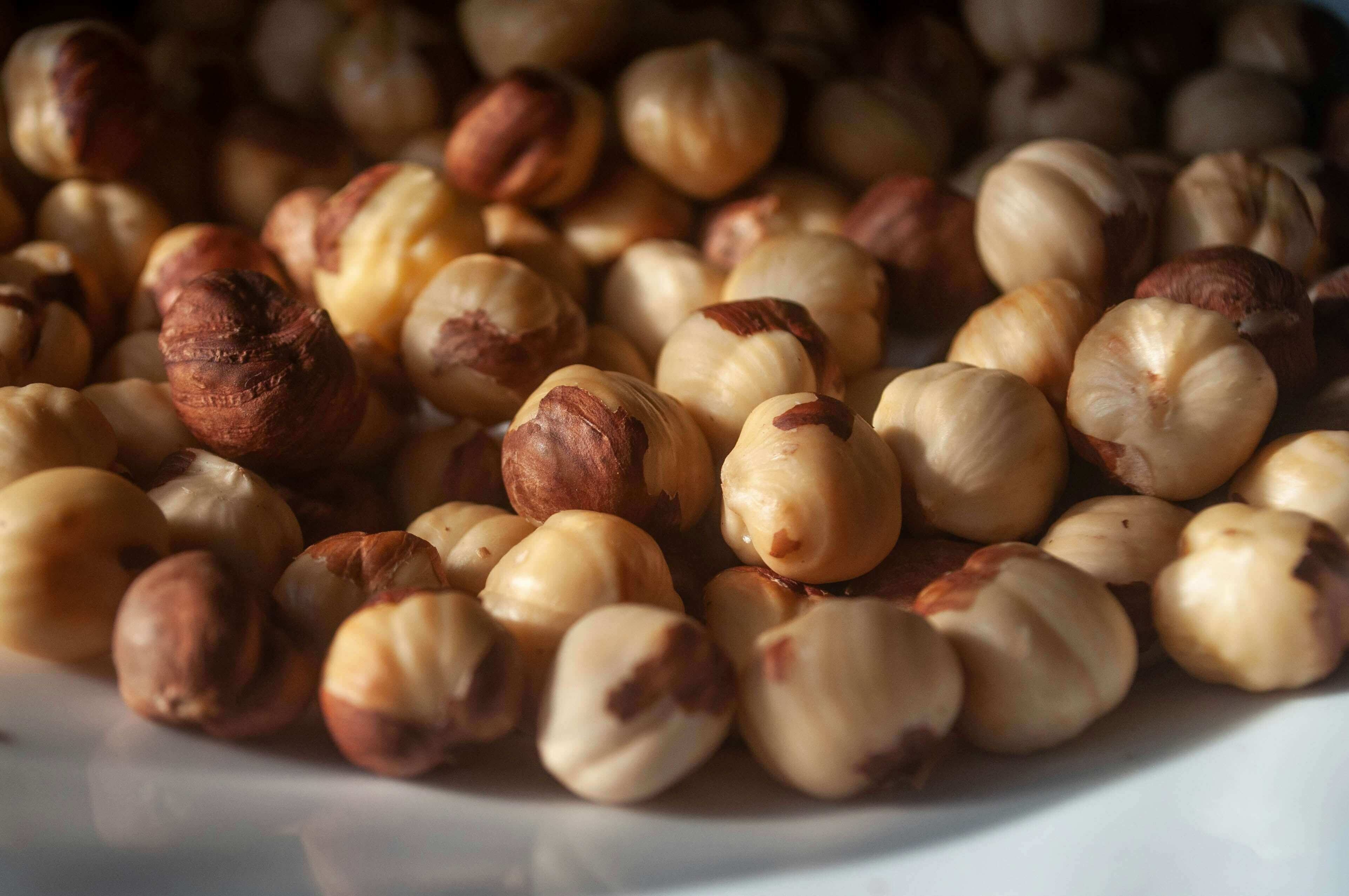
The global demand for hazelnuts continues to rise, driven by the growth of confectionery, bakery, and healthy snack markets. As consumption increases, so does the importance of quality control. Hazelnut processors face mounting pressure to deliver ...
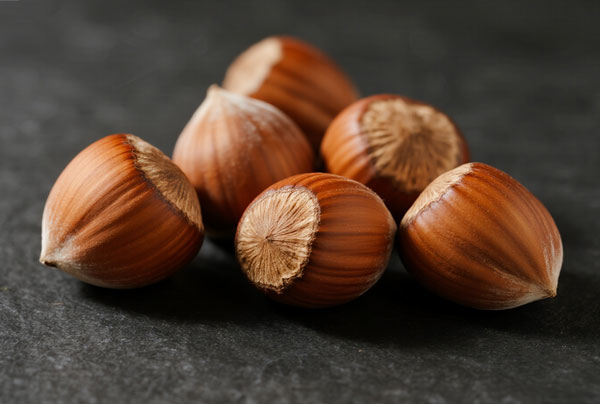
Hazelnuts are widely used in confectionery, bakery, and snacks, where product quality directly affects market value. However, hazelnut processing often faces serious challenges, such as pest infestation, seasonal labor shortages, and inconsistent m...
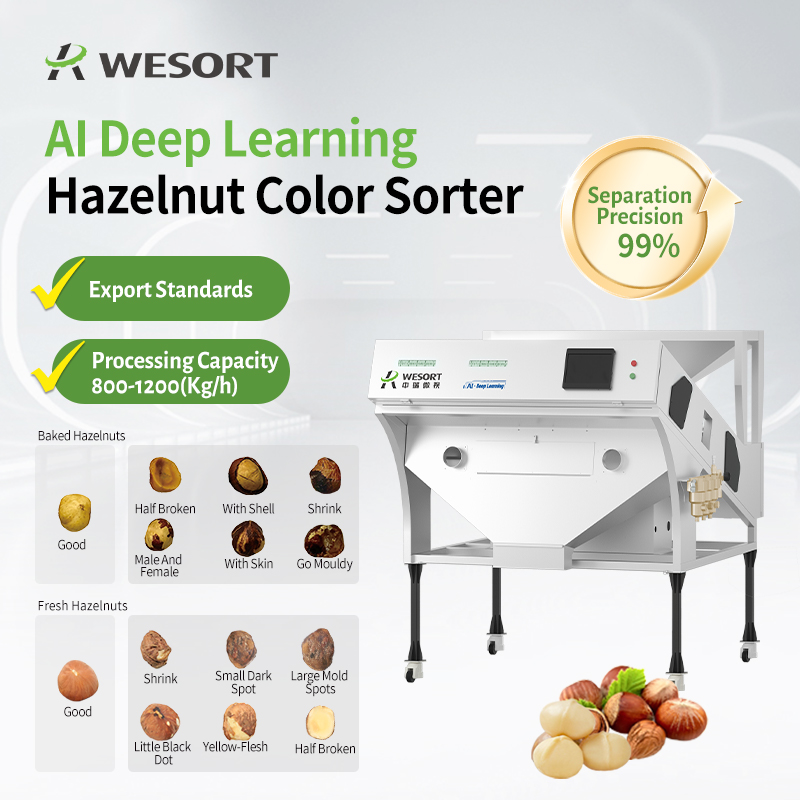
Hazelnut is the nut of the hazel and therefore includes any of the nuts deriving from species of the genus Corylus, especially the nuts of the species Corylus avellana. It is also known as cobnut or filbert nut according to species. A cob is roughl...
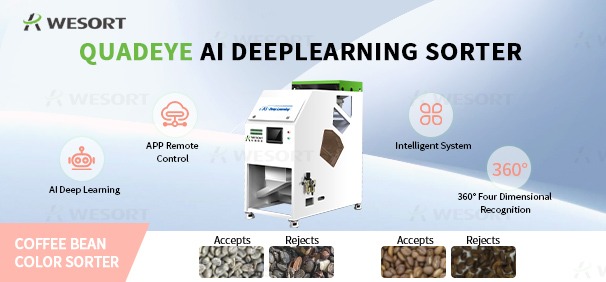
When you enjoy a smooth cup of coffee, you may not realize how much work goes into ensuring its purity and flavor. From harvest to cup, every step matters—and one of the most critical yet often overlooked stages is coffee bean sorting. Common Cof...
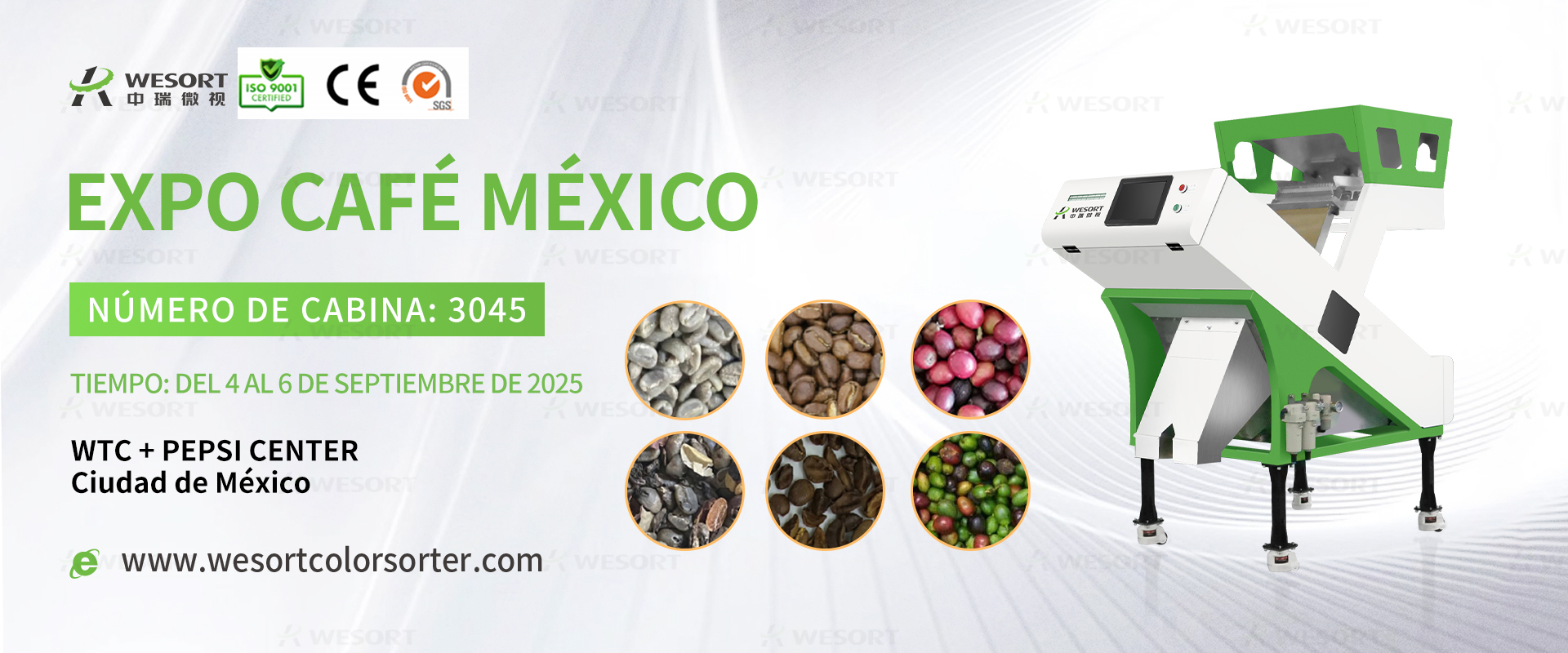
Dear Coffee Industry Partners, The Mexican Coffee Shop Expo 2025 is just around the corner—and WESORT , a leader in intelligent sorting technology, will be there to showcase our core solution for coffee processors: Coffee Bean Color Sorters. Mark...
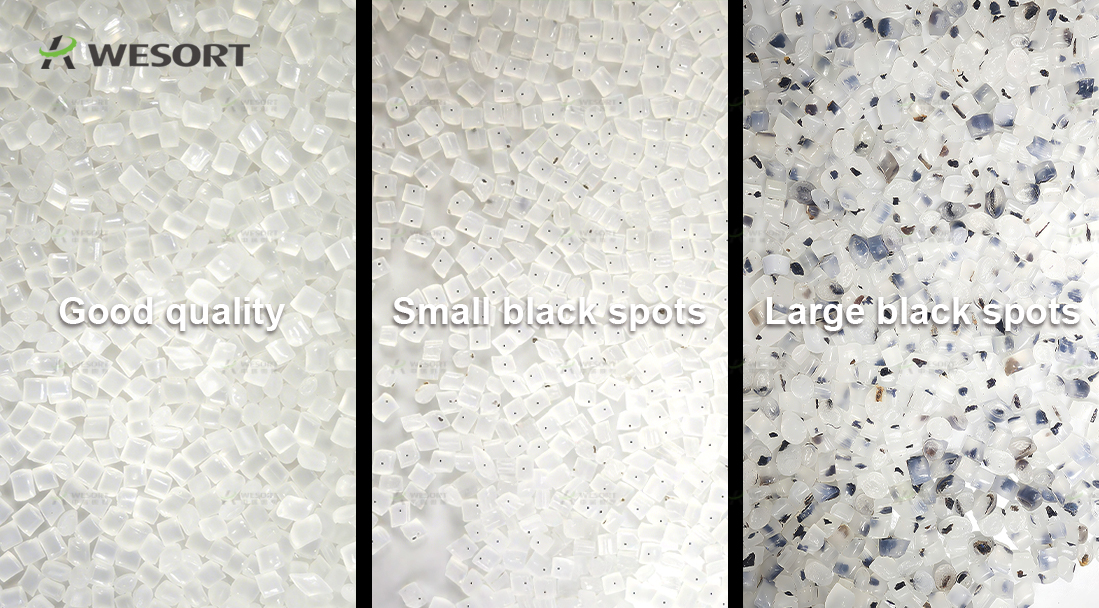
In the plastic pellet production process, color purity often directly determines the product's selling price and market competitiveness. Especially for transparent, white, or light-colored plastic pellets, even tiny black specks can affect the appe...

In modern agriculture, food processing, and recycling, quality control plays a vital role. This is where an optical sorter comes in. Many buyers often ask: What is an optical sorter? What does it do? How much does it cost? And how is WESORT optical...

In the coffee industry, the quality of the final cup often depends on the smallest details during processing. One crucial step is removing defective beans, foreign materials, and color inconsistencies. This is where a coffee bean color sorter plays...

Coffee processing is a complex and meticulous task that involves several stages to transform raw coffee cherries into the high-quality beans we enjoy in our morning brew. One crucial step in this process is the sorting of coffee beans based on thei...

In the world of walnut processing, even the smallest imperfection can significantly impact product quality, market price, and brand reputation. Mold, insect damage, broken pieces, or inconsistent color are common defects that reduce the value of wa...

From green bean exporters to specialty coffee roasters, every producer faces the same challenge: how to remove defects efficiently while protecting valuable beans. Problems such as mold, fermentation damage, insect bites, black beans, broken beans,...

To meet the growing demand for premium and specialty coffee, sorting accuracy must go beyond traditional color-based systems. The QuadEye 360 AI Coffee Bean Sorter, developed by WESORT, represents the next generation of intelligent coffee bean so...

Dear friend, If you are attending World of Coffee Dubai 2026. we would like to invite you to visit WESORT. We will showcase our QuadEye 360 AI Coffee Bean Sorter, featuring 360° four-side inspection, AI deep learning models, near-zero breakage,...

Meta Description: Looking for the top hazelnut sorting machine manufacturer? WESORT offers advanced hazelnut color sorters with AI deep learning to efficiently remove defects, pests, and foreign materials. Boost your hazelnut processing efficienc...